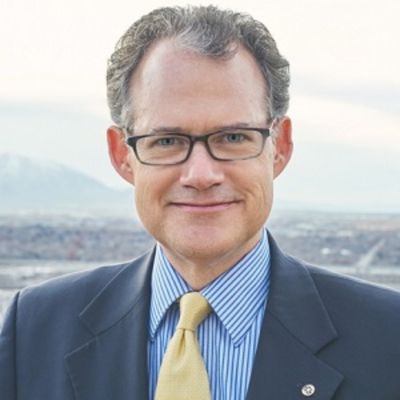Host Devin Thorpe, candidate for Utah's 3rd Congressional District, interviews guests to discuss social issues that impact Utahns. Paid for by Friends of Devin Thorpe.
https://www.podomatic.com/podcasts/yourmarkontheworld
#96: Expert Says We Can Reduce Fossil Fuel Use 80% With Existing Technology
August 26, 2014 - Read the full Forbes article and watch the interview here: http://onforb.es/1rw15Ag.
Subscribe to this podcast on iTunes by clicking here: http://bit.ly/ymotwitunes or on Stitcher by clicking here: http://bit.ly/ymotwstitcher.
Amory Lovins, a “recovering physicist” who founded and now leads the Rocky Mountain Institute, is the author of Reinventing Fire and a Forbes contributor who says that existing technology allows us to reduce carbon emissions by 80 percent. For this article he provided a quick explanation of his ideas:
The United States now wrings more than twice as much work from its energy as it did 40 years ago, yet most of the energy used today is still wasted. We can now save twice as much as I then claimed (to much ridicule), but at a third the real cost. With the best modern techniques, more efficiently converting energy into the same or better services can save, for example, about ⅔ to ¾ of the energy we use in buildings (with a 33% IRR), half in industry (21% IRR), and ≥4/5 in transportation (17% IRR)). “Integrative design”—optimizing buildings, factories and industrial equipment, and vehicles as whole systems for multiple benefits, not isolated components for single benefits—can often make big savings cost less than small or no savings, turning diminishing returns into expanding returns.
Modern energy efficiency makes it easier and quicker to switch supplies from old, expensive technologies to newer, cheaper, safer, cleaner ones. RMI’s *Reinventing Fire* synthesis (2011, www.rmi.org/reinventingfire) showed how with a 14% IRR and a $5-trillion NPV saving, the United States could run a 2.6x bigger economy in 2050 with no oil, coal, or nuclear energy and ⅓ less natural gas. This would require no new inventions nor Acts of Congress, but could be led by business for profit.
